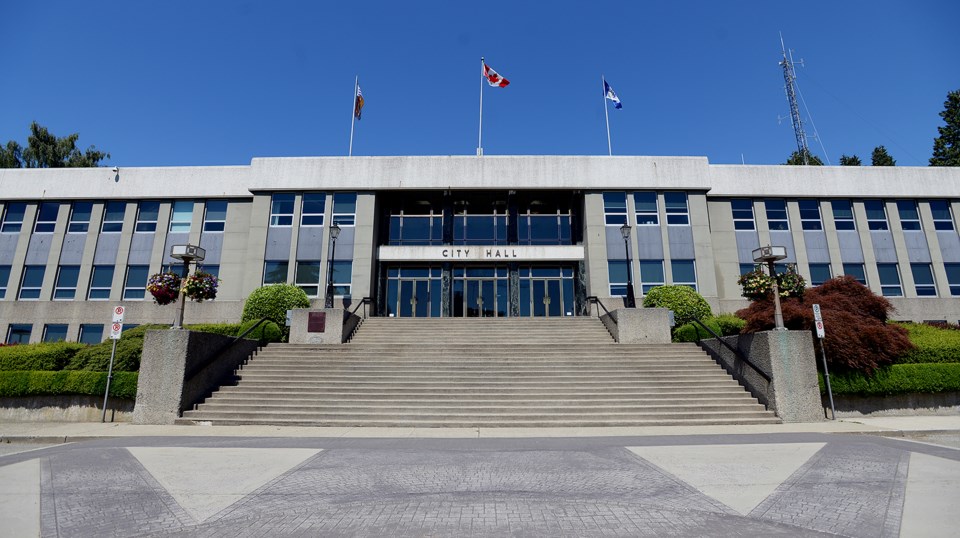The City of New Westminster is implementing a massive overhaul to its advisory committees – and there could be more changes to come.
If you’re a council follower or have served on one of the city’s advisory committees in the past, the committee landscape is going to look a whole lot different in 2020. Some existing committees are being rolled into new committees, others are becoming new staff technical committees and several will be evaluated in 2020.
“We still have 27 committees under the new structure,” said Mayor Jonathan Cote. “There is still going to be lots of great opportunities for members of the public to engage in that process, and I think actually more focused on the areas of the work that we are going to be working on.”
Cote said New Westminster has always been a community that has sought to engage people in a lot of important issues. When faced with a challenge, he said the default has often been to set up a committee – which left the city with 38 committees.
“If you want to actually compare that to comparable municipalities in Metro Vancouver, it is a way higher number,” he said. “As an example, the City of Port Coquitlam has one committee. I am not saying that is the right direction, but I think there was a realization we have never actually had the chance to go back and look at our committee structure that has over the years grown for good reason and for good intention. We landed in a process where we were actually able to focus our committees, really on trying to say, where do we want to get meaningful impact from the community?”
Council has approved the reorganization of the city’s committees to better align them with New Westminster’s strategic plan, which focuses on: affordable housing; culture and economic development; environment and climate action; facilities, infrastructure and public realm; sustainable transportation; and reconciliation, inclusion and engagement. Task forces in these six areas will be comprised of the mayor, two councillors, staff and, in some cases, representatives from specific organizations such as TransLink and B.C. Housing.
Six of the new advisory committees directly align with the city’s strategic priorities. The task forces and advisory committees will meet on alternating months.
“This alignment of the task forces with the advisory committees is designed purposefully to provide a twofold benefit,” said a staff report. “Task forces will be able to request direct public input from its respective advisory committee. Advisory committees will be able to provide meaningful input and impact into the implementation of the city’s strategic priorities.”
Recruitment for community members wishing to serve on the 2020 advisory committees is now open for the following committees: advisory planning commission; affordable housing and child care advisory committee (new); arts commission; board of variance; community heritage commission; economic development advisory committee (new); environment and climate advisory committee (new); facilities, infrastructure and public realm advisory committee (new); library board; multiculturalism advisory committee; public art advisory committee; restorative justice committee; seniors advisory committee; sustainable transportation advisory committee (new); and youth advisory committee.
The work of several of the existing committees will be incorporated into the mandates of new committees. The work of the access ability advisory committee will now be merged into two committees (sustainable transportation and facilities, assets and the public realm); ActBiPed (advisory committee for transit, bicycles and pedestrians) will go into the sustainable transportation committee; the community and social issues committee will be done by the affordable housing and child care committee; the intelligent city advisory committee will now be handled by the economic development committee; the neighbourhood traffic advisory committee will now be included in the sustainable transportation committee.
While the city has already taken steps to align its committees with its strategic priorities, more changes could be coming.
Discussions will take place with the youth, seniors, multicultural and restorative justice advisory committees in the next year to determine a framework for the reconciliation, inclusion and engagement advisory committee. That new advisory committee will start in 2021, although the council and staff task force begins in 2020.
Next year, the development services department will explore the mandates of a handful of committees that relate to the city’s development approval process – the land use planning committee, the advisory planning commission, the New West design panel and the community heritage commission.
To date, the railway community advisory panel, the Remembrance Day advisory committee and the emergency management advisory committee have included council, citizens and stakeholders, but that will no longer be the case because they’re becoming staff technical committees.
Coun. Chuck Puchmayr was the lone councillor to oppose the new committee structure, citing “serious concerns” about the restructuring of the railway community advisory panel and the emergency management committee. He feels they should include council representation.
If you’re interested in applying to serve on any of the city’s committees, details are found at www.newwestcity.ca/committees.
“Staff recognize that committees bring unique perspective to the city’s engagement efforts,” said a staff report. “It is in this light that the new advisory committee terms of reference strive to reflect a balance between neighbourhoods, abilities, ages, cultures, genders, incomes and housing tenures in all advisory committees.”



